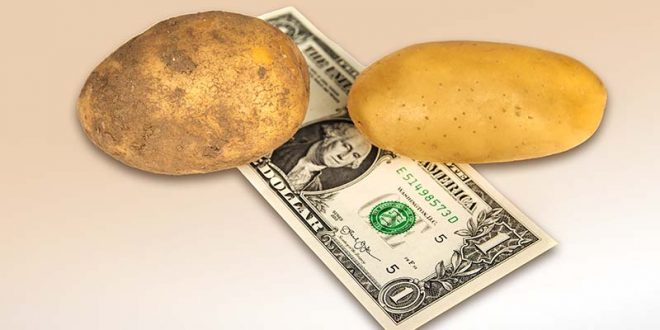Recently, potato prices increased significantly across the globe. Since the spud costs are determined by supply and demand, some agricultural experts argued that the increase is the result of a market shortage.
Others claim that it is the result of price manipulation by some merchants who control the commodity by purposefully lowering the available quantities to increase the product prices.
In Georgia, for example, an important producing region – Samtskhe-Javakheti – had a subpar harvest this year, which caused potato prices to increase. That led to boosted levels of imports to meet local demand.
“The country has begun to import, but the volumes are small and prices are still rising. This is likely to encourage imports more. Currently, traders in the wholesale market sell potatoes at an average of USD0.74. Both imported and local potatoes are priced the same. […] The average farm price ranges from USD 0.55-0.63. The average wholesale price […] which includes prices from both traders and farmers, is USD0.66, up 6% from previous weeks,” EastFruit recently wrote.
Georgia imported 530 tonnes of potatoes, according to official trade figures for October. Armenia, Kazakhstan, and Kyrgyzstan are the biggest suppliers. Less than 1% of the Samtskhe-Javakheti harvest was imported in the same month.
“Local stakeholders say that high prices have made imports possible, but imports have not yet managed to keep prices down. Local stocks are running out fast and further price increases are possible. Imports will no doubt rise in the coming months as the end of the season approaches. The next major potato harvest in Georgia will start in May 2023. Until then, neighboring countries will have opportunities to export potatoes to Georgia,” the above-mentioned source’s experts mentioned.
The Most Recent Record Price for a Kilo of Potatoes Sold in Jordan is USD1.41
For the first time in recent memory, potato prices soared to an unheard USD1.41 per kilo. Outraged Jordanians questioned the reasons behind the hike, arguing that the good is produced locally and that its cost should be reasonable throughout the year.
Ibrahim Al-Sharif, the head of the Jordan Farmers Association, told Jordan News that a frost wave in March and persistent heat waves in the summer destroyed crops, ultimately leading to a shortage in the local market.
“[…] That generated a significant price increase of this specific commodity, especially since pricing is linked to supply and demand,” Al-Sharif mentioned.
He predicted that prices will fall over the next few weeks, particularly because farmers in the southern provinces are supplying potatoes until there are sufficient quantities to meet the market’s demands.
On the other hand, Mahmoud Al-Oran, director-general of the Jordan Farmers Union, claimed that in some places, most notably at supermarkets in west Amman, the cost of a kilogram of potatoes reached USD1.41.
“Some merchants control the prices of […] potatoes, and they supply the market with small quantities of potatoes that are below the market needs, which ultimately contribute to the prices spikes,” he concluded.







